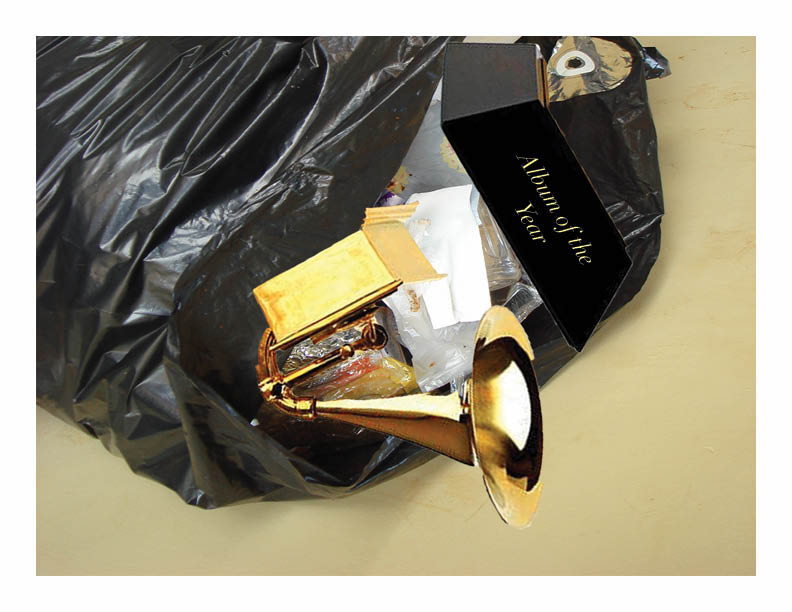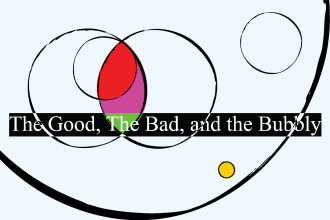T’was the week of the 2017 Grammy Awards when Frank Ocean emerged from hiding and took to Tumblr to absolutely drag the show’s producer, Ken Ehrlich, and writer David Wild. Ocean posted a scathing message to clarify that he had not abstained from submitting his 2016 album, Blonde, for Grammy consideration out of shame that his performance at the ceremony in 2013 had been “rigid” and “faulty,” as Ehrlich and Wild alleged. He did so because of the show’s “cultural bias and general nerve damage.” While this description sums up everything that’s been wrong with the Grammys as a program, and the Recording Academy as an institution, Ocean also clapped back by citing a prime example of their defectiveness: Taylor Swift’s 1989 being awarded Album of the Year over Kendrick Lamar’s To Pimp A Butterfly.
I’m not going to take the time here to argue why TPAB is the superior album – musically, lyrically, culturally, historically – but you don’t have to believe me. As Frank wrote in his post, “Believe the people.” with an album that not only deftly synthesizes various genres, but features a song like “Alright”, which became a rallying cry at Black Lives Matter protests throughout the year, the Academy should have recognized that the album was bigger than just the rap category.
Surely the show will suffer without any performances from the most prominent and dynamic genre in the industry at the moment.
Over the past two years, the Grammys have continued to prove that they struggle to stay in tune with the zeitgeist. Somehow, Metro Boomin has yet to be nominated for Producer of the Year, despite his repertoire containing the ubiquitous hits: Migos’ “Bad and Boujee,” Post Malone’s “Congratulations” and Future’s “Mask Off.” Ehrlich told The New York Times that the Grammys diminishing support from the hip-hop community is due to its artists being upset about not “[taking] home the big prize.” This is a gross oversimplification that conceals the issue as rappers throwing tantrums rather than the Academy taking responsibility for its decades of oversight. Surely the show will suffer without any performances from the most prominent and dynamic genre in the industry at the moment.
Even when the Academy manages to do something right, it usually does it half-right, at best. In 2016, it was rather admirable to see the Grammys spotlight The Internet’s Ego Death when the group was just beginning to pick up steam. However, the album was placed in the problematic category of ‘Urban Contemporary.’ Firstly, the parameters of this fabricated genre remain dubious, resulting in a class of contenders with disparate sounds. Yet, since the award for Best Urban Contemporary Album was created in 2013, all the nominees have shared the common denominator of being non-white artists, and the majority of them black. In his piece for Medium, Jeremy Winslow traces the etymology of the word ‘urban’ to reveal its racist undertones that make the clumping together of these artists all the more troubling. “The category is seemingly designed to compartmentalize black artists, undermining the culture’s contributions to and influences on music even as it tries to celebrate it.” This marginalization under the façade of inclusion is accentuated by the fact that none of the winners in this category have also won Album of the Year (and this includes Beyoncé, Rihanna and Frank Ocean!).
And when the Academy achieves some diversity among its nominees, they fumble when it comes to doling out the ultimate accolades. Last year, Alessia Cara was the only woman to win an award during the broadcasted ceremony. After the Recording Academy’s president, Neil Portnow, was asked by Variety to respond to the backlash, he gave the horrendous response that “[women] need to step up” in order for this inequity to be overcome. Regardless of how Portnow attempted to backtrack on his statement following this interview, he undoubtedly attempted to put the onus on women when they have undoubtedly been present, forceful, and essential in all realms of the music industry. This week, The Village Voice published an article by Jessica Hopper, in which she pushes back against the inclination to proclaim 2018 ‘The Year of the Woman’ in music, even though women occupied the majority of the top spots in most publications’ lists of the year’s best albums. “To suggest women have arrived erases the fact that they have, in fact, always been here. As with any group marginalized within music culture, their being continually situated as breaking through has reinforced their exteriority to structural power, framing their successes as an illegitimate seizure of that power.”
The performances in which artists are granted creative freedom tend to be much more captivating than the spectacles that the Grammys tries to concoct by forcing together incongruent acts.
With the widespread discontent regarding nominees and winners, the ceremony itself is falling apart as artists increasingly refuse to attend or perform. Last year, Lorde made headlines when she turned down the Grammys request for her to participate in a collaborative tribute to Tom Petty. Lorde was the only woman nominated for Album of the Year and was also the only artist from the category who was not given the option to perform solo. This year, the Grammys organizers appear to be stepping on toes again. On Thursday, Ariana Grande announced that she wouldn’t be performing because they rejected all three of the songs she offered to do. She only publicly shared this information because Ehrlich told The Associated Press that the reason for her dropping out was an insufficient amount of time for her to prepare.
Grande tweeting that her “creativity and self-expression were stifled” by the Academy is reminiscent of what almost happened with Frank Ocean. It’s funny that the Grammys organizers still think they know what makes for “great TV” while their ratings tank drastically (last year by 24%). I only distinctly recall a handful of Grammy performances that I’ve watched in my life and a solitary, yellow-suited Frank Ocean singing “Forrest Gump” is certainly one of them. When Wild criticized this performance, he said, “Frank had a very definite idea of exactly what he wanted to do and how he wanted to do it,” as if this obstinacy were a tragic flaw. Ariana Grande and Frank Ocean insisting that their own visions are respected when presenting their work to millions of people simply indicates artistic integrity. If their names are big enough to attract viewers, then trust that they know how to put on a show. The performances in which artists are granted creative freedom tend to be much more captivating than the spectacles that the Grammys tries to concoct by forcing together incongruent acts (tune in Sunday for St. Vincent x Dua Lipa…).
Every year, I tell myself that I’m done wasting my energy thinking or complaining about the mess that is the Grammys, and then whenever the topic comes up I find myself going off. Why should I care about the Grammys failing to acknowledge artistic excellence when its sole concerns seem to be so transparently commercial? Trashing the Grammys partially feels like kicking a dead horse. If important artists continue to boycott it, it will eventually phase out, no? Yet, I continue to feel frustrated that the golden gramophone still retains any bit of value. Despite so many people being willing to have the necessary conversations to make this space more inclusive, the Grammys refuses to put in the work while posturing as if they are committed to the cause and blaming artists for its own faults. Maybe the Grammys is one of those institutions that is fundamentally broken and needs to be thrown out entirely. As Frank Ocean told the myopic men running the show, “we all die one day and you’re old so fuck it”. Change will come.








